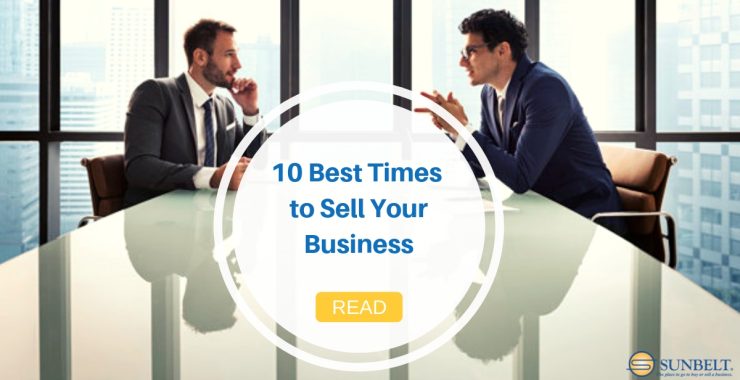Selling A Business
Importance of Choosing the Perfect Purchaser When Selling Your Business
When a broker markets a business for sale, the goal is to generate multiple buyers who are competing for the deal. When this happens, the difficulty is oftentimes how to identify the best buyer within the group. Choosing the best buyer could result in a higher selling price, more favorable terms, and (typically) a quicker close. Therefore, identifying the qualities of an ideal buyer is crucial and should be a discussion from the outset of your business broker’s marketing efforts.
Financial versus Strategic Buyers
Buyers originate from a range of locations and are typically of two types: financial and strategic. A financial buyer is typically more of an investor than an operator and focuses mostly on leveraging investor funds and debt to finance the acquisition. Similar to flipping a house, the objective of the financial buyer would be to purchase the property, “fix it up”, and then sell it 5 to 10 years later in the hopes of increasing its value. It is usual for financial purchasers to structure a portion of the purchase price as a seller note and/or an earn out. This will ensure that the former owner maintains an interest in the company’s success and may contribute to its future growth.
A strategic buyer is distinct in that they are typically larger competitors in the same or a related industry seeking to expand their current operations. Strategic buyers seek synergies where they believe they may boost profitability through increased volume or augment their offering with a comparable or related product or service. Depending on the anticipated synergies, the strategic buyer may place a significantly higher value on the business than a financial buyer.
Buyer Qualifications
Prior to committing to what can at times be a lengthy due diligence procedure, it is essential that prospective purchasers be checked. If a buyer is not financially or otherwise qualified, pursuing this path can squander a great deal of time and money with a chance for failure. Sellers will save a substantial amount of time and money by engaging the assistance of an experienced business broker or M&A advisor who is an expert in the process. The buyer must disclose information on their available investment capital, sources of funding, and any outstanding judgments or bankruptcies against them or their organization. In addition, the seller should determine why the potential buyer is interested in purchasing a business. If the buyer is a strategic buyer, the seller must be aware of any synergies that may be sought. If the buyer has a strong financial background, the seller must be aware of the investors’ track record of success, if one exists.
Buyer Readiness
It is also essential to establish the buyer’s level of commitment. Many possibilities could be individuals who desire an entrepreneurial lifestyle but are not prepared to take the plunge, or even competitors posing as prospective buyers seeking industry knowledge. For this reason, it is crucial to ask the correct questions while vetting potential candidates. According to Entrepreneur.com, here some crucial questions to ask are:
What type and size of business are they seeking?
Oftentimes, a buyer who does not know the answer to this question has not done sufficient research or preparation to comprehend what they are seeking in terms of number of employees, sale price, or even the industry they wish to enter. To say nothing of determining whether they are financially qualified. If they can’t clearly answer these simple questions, it’s usually a sign that they’re not serious.
How Long Have they searched?
If the buyer is relatively new to the search, it is also possible that they have not given it much attention. Additionally, they may not be preapproved for finance and are just beginning their trip. On the other hand, if they have been hunting for a long time, they may be the sort that have always desired to own their own business, but are unwilling or unable to take the final step.
What is their experience in this field?
Depending on the type of business, the owner may be required to possess a certain qualification, such as a general contractor’s license. And if they are not, do they plan to employ someone who is? And then would it make financial sense, given that it would incur an additional expense? This is an excellent question to ask to help them determine the level of experience they may require. They may not realize they are unqualified, so eliminating them could save time in the long run.
Can they afford the business?
This question is difficult but evident. Many prospective buyers may assume they will be able to obtain a loan or misjudge the worth of a business. To ensure alignment, it is essential to do this task early on. Additionally, serious buyers should be able to provide proof of funds.
Qualifying and selecting the right prospective buyer is a key step that, when completed effectively, can save a great deal of trouble in the future. Having a pre-qualification process in place prior to disclosing sensitive information to purchasers will help exclude those who are less serious or deter competitors who are simply fishing for information. By focusing on the right buyers, the deal is far more likely to get to the finish line.




